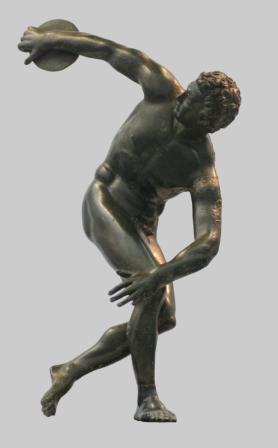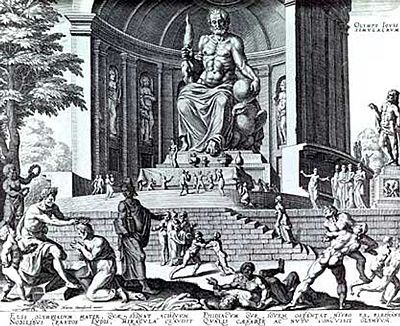 |
|
|
|
"Sport" comes from the Old French desport meaning "leisure". American English uses the term "sports" to refer to this general type of recreational activity, whereas other regional dialects use the singular "sport". The French word for sport is based on the Persian word bord, meaning "winning" or "win". The Chinese term for sport, connotes physical training. The modern Greek term for sport is Αθλητισμός (athlitismos), directly cognate with the English terms "athlete" and "athleticism".
The oldest definition of sport in English (1300) is of anything humans find amusing or entertaining. Other meanings include gambling and events staged for the purpose of gambling; hunting; and games and diversions, including ones that require exercise. There are artifacts and structures that suggest that the Chinese engaged in sporting activities as early as 2000 BC. Gymnastics appears to have been a popular sport in China's ancient past. Monuments to the Pharaohs indicate that a number of sports, including swimming and fishing, were well-developed and regulated several thousands of years ago in ancient Egypt. Other Egyptian sports included javelin throwing, high jump, and wrestling. Ancient Persian sports such as the traditional Iranian martial art of Zourkhaneh had a close connection to the warfare skills. Among other sports that originate in ancient Persia are polo and jousting. A wide range of sports were already established by the time of Ancient Greece and the military culture and the development of sports in Greece influenced one another considerably. Sports became such a prominent part of their culture that the Greeks created the Olympic Games, which in ancient times were held every four years in a small village in the Peloponnesus called Olympia. Sports have been increasingly organized and regulated from the time of the ancient Olympics up to the present century. Industrialization has brought increased leisure time to the citizens of developed and developing countries, leading to more time for citizens to attend and follow spectator sports, greater participation in athletic activities, and increased accessibility. |

|
These trends continued with the advent of mass media and global communication. Professionalism became prevalent, further adding to the increase in sport's popularity, as sports fans began following the exploits of professional athletes through radio, television, and the internet—all while enjoying the exercise and competition associated with amateur participation in sports. In the New Millennium, new sports have been going further from the physical aspect to the mental or psychological aspect of competing. Electronic sports organizations are becoming more and more popular. |
 |
THE OLD and the MODERN OLYMPIC GAMES'
The beginning (8e century, 776 BC) is surrounded by darkness. The Games were organised in honour of Zeus and to promote solidarity. The marathon has nothing to do with the Games. Around 93 AC, the Games had stopped because the 'pagan'. Games were no longer reconcilable with the rise of believe in Jesus Christ. Not until in the 19th century in Olympia new life was put into the Games. Athletics is the king of sport. The old Games were also held every other 4 years. Greeks (only men) from Spain till Egypt went to the Games in Delphi, Corinthe and other polis. 6th Till 47th century BC was the flourishing period. Roman breathe new life into the Games. Much more people were involved and quantity of sports increased. The meaning: to realise more fraternization. |
In 1859 the Greec Zappas started up the idea to organise the Games again. The Frenchmen Pierre De Coubertin ('to join is more important than to win') took over this idea.
In the year of 1869 the first of the new Olympic Games wer held. The torch is a modern tradition. |
A traditional Iranian system of athletics originally used to train warriors. It combines martial arts, calisthenics, strength training and music. Recognized by UNESCO as among the world's longest-running forms of such training, it fuses elements of pre-Islamic Persian culture (particularly Zoroastrianism, Mithraism and Gnosticism) with the spirituality of Shia Islam and Sufism. Practiced in a domed structure called the zurkhaneh, training sessions consist mainly of ritual gymnastic movements and climax with the core of combat practice. |